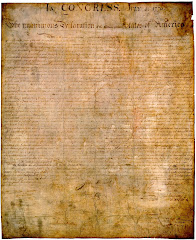 News of neoconservatism's demise has been greatly exaggerated, according to prolific journalist Heilbrunn, who profiles the largely (though by no means exclusively) Jewish makeup of the movement. Heilbrunn roots his interpretation of neoconservatism's Jewish character in the American immigrant experience, the persistent memory of the Holocaust and Western appeasement of Hitler, among other phenomena. Charting the movement's philosophy from its inception through the foreign policy vision crafted in the 1970s and the culture wars of the 1980s and '90s, Heilbrunn employs a quasi-biblical spin echoed in Old Testament-inspired chapter headings. With the exception of his grasp of neoconservatism's right-wing Christian contingent, Heilbrunn displays an innate understanding of the movement. He argues persuasively that though these self-styled prophets embrace an outsider stance, and though he believes they are happiest when viewed as the opposition, they will remain a formidable influence for the foreseeable future. Heilbrunn's analysis lacks rigor concerning foreign policy assumptions and ideological and economic motives, thus unintentionally leaving his subjects more historically isolated than they really are. His proximity to the conservative movement brings benefits and limitations to this historical analysis. (Jan.)
News of neoconservatism's demise has been greatly exaggerated, according to prolific journalist Heilbrunn, who profiles the largely (though by no means exclusively) Jewish makeup of the movement. Heilbrunn roots his interpretation of neoconservatism's Jewish character in the American immigrant experience, the persistent memory of the Holocaust and Western appeasement of Hitler, among other phenomena. Charting the movement's philosophy from its inception through the foreign policy vision crafted in the 1970s and the culture wars of the 1980s and '90s, Heilbrunn employs a quasi-biblical spin echoed in Old Testament-inspired chapter headings. With the exception of his grasp of neoconservatism's right-wing Christian contingent, Heilbrunn displays an innate understanding of the movement. He argues persuasively that though these self-styled prophets embrace an outsider stance, and though he believes they are happiest when viewed as the opposition, they will remain a formidable influence for the foreseeable future. Heilbrunn's analysis lacks rigor concerning foreign policy assumptions and ideological and economic motives, thus unintentionally leaving his subjects more historically isolated than they really are. His proximity to the conservative movement brings benefits and limitations to this historical analysis. (Jan.) Copyright © Reed Business Information, a division of Reed Elsevier Inc. All rights reserved.
Book Description
The neocons have become at once the most feared and reviled intellectual movement in American history. Critics on left and right describe them as a tight-knit cabal that ensnared the Bush administration in an unwinnable foreign war.
Who are the neoconservatives? How did an obscure band of policy intellectuals, left for dead in the 1990s, suddenly rise to influence the Bush administration and revolutionize American foreign policy?
Jacob Heilbrunn wittily and pungently depicts the government officials, pundits, and think-tank denizens who make up this controversial movement, bringing them to life against a background rich in historical detail and political insight. Setting the movement in the larger context of the decades-long battle between liberals and conservatives, first over communism, now over the war on terrorism, he shows that they have always been intellectual mavericks, with a fiery prophetic temperament (and a rhetoric to match) that sets them apart from both liberals and traditional conservatives.
Neoconservatism grew out of a split in the 1930s between Stalinists and followers of Trotsky. These obscure ideological battles between warring Marxist factions were transported to the larger canvas of the Cold War, as over time the neocons moved steadily to the right, abandoning the Democratic party after 1972 when it shunned intervention abroad, and completing their journey in 1980 when they embraced Ronald Reagan and the Republican party. There they supplied the ideological glue that held the Reagan coalition together, combining the agenda of “family values” with a crusading foreign policy.
Out of favor with the first President Bush, and reduced to gadflies in the Clinton years, they suddenly found themselves in George W. Bush’s administration in a position of unprecendented influence. For the first time in their long history, they had their hands on the levers of power. Prompted by 9/11, they used that power to advance what they believed to be America’s strategic interest in spreading democracy throughout the Arab world.
Their critics charge that the neo-conservatives were doing the bidding of the Israeli government -- a charge that the neoconservatives rightfully reject. But Heilbrunn shows that the story of the neocons is inseparable from the great historical drama of Jewish assimilation. Decisively shaped by the immigrant exerience and the trauma of the Holocaust, they rose from the margins of political life to become an insurgent counter-establishment that challenged the old WASP foreign policy elite.
Far from being chastened by the Iraq debacle, the neocons continue to guide foreign policy. They are advisors to each of the major GOP presidential candidates. Repeatedly declared dead in the past, like Old Testament prophets they thrive on adversity. This book shows where they came from -- and why they remain a potent and permanent force in American politics.







